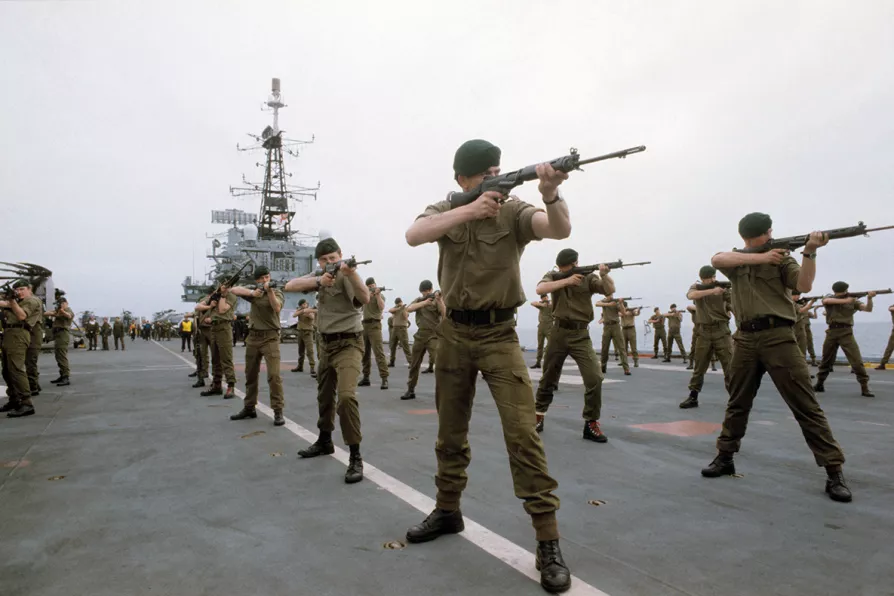The US-Israeli strikes against Iran are part of a decades-long war against the Islamic Republic which has refused to bow to US demands that it surrender its sovereignty, argues VIJAY PRASHAD

 Royal Marines exercise the deck of the HMS Hermes, the Flag Ship of the British Task Force on route to the Falkland Islands, April 1982
Royal Marines exercise the deck of the HMS Hermes, the Flag Ship of the British Task Force on route to the Falkland Islands, April 1982
ON MAY DAY 40 years ago, anti-war campaigners were arrested in cities around Britain.
Argentinian troops had invaded the Falklands Islands a month earlier. The British naval task force had been dispatched to the South Atlantic and the Thatcher government avoided a negotiated settlement. All-out war looked likely to break out very soon.
On May 1, 1982, the Peace Pledge Union (PPU) called a country-wide day of protest and resistance. Demonstrations and vigils took place in at least 30 towns and cities. Some involved small-scale marches, others were more dramatic. Women in Sheffield occupied a Royal Navy recruitment office. Another recruitment office was paint-bombed in Holborn. Protesters in Glasgow were arrested while handing out leaflets and selling newspapers.

At 80, Elizabeth Morley wished she could join Palestine Action’s ladder-climbing but found her perfect protest at Defend Our Juries, proving Britain’s elders won’t be silenced despite government crackdowns, writes LINDA PENTZ GUNTER













